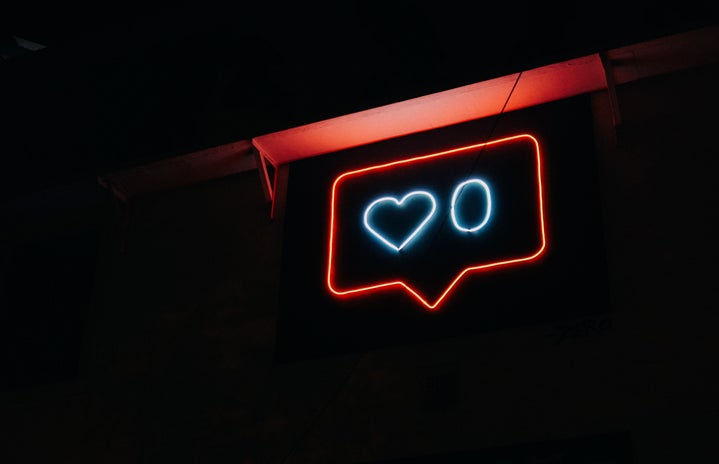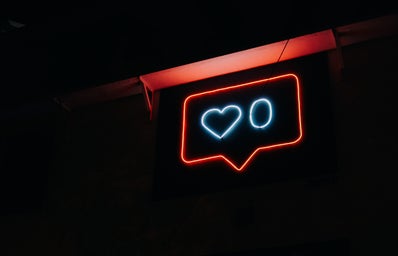2020 has been the craziest year I have ever lived through. The world has been tipped off balance, impacting each and every person in vastly different ways. Throughout our summer quarantine many people, including myself, turned to social media platforms such as Tik Tok and YouTube to distract themselves from the daily struggles and stresses of COVID-19. Being stuck in quarantine, there was not much to do besides reflect on ourselves and delve into the world around us. Despite all the horrible things that have occurred in 2020, a concept that has become immensely heightened through quarantine, perhaps prompted from the rise of social movements, is Cancel Culture. Although it is important to hold people accountable for their thoughts, statements and actions, where do we draw the line?

To break down cancel culture in the most general way possible, it is no longer supporting a person after having done or said something that is not socially acceptable, followed by boycotting. However, it is naïve to see Cancel Culture as something this straightforward and simple. Cancel Culture is a complex social system that combines public consciousness, a shared group of values, accountability and criticism. The rise of social media and the progression of technology has made cancelling someone more accessible to the masses and therefore has allowed this phenomenon to flourish. On the one hand, this system is a successful way of combating prejudicial and discriminatory behaviours and mentalities because it reinforces the implicit cultural expectation of social awareness and demands social change. It strengthens the understood societal agreement that we will no longer support oppressive and inequitable behaviours. In the instances where our societal institutions fail to hold companies and individuals accountable, the rest of the world uses their newfound and growing power to express their outrage with anything problematic. On the other hand, Cancel Culture has become a way to justify forceful cyberbullying, public shaming and alienation. As this social system is complex in its nature, it becomes toxic and tricky when it no longer becomes about accountability, growth and redemption but rather destroying someone’s life.
One of the most infamous examples of Cancel Culture that began in 2019 but resurfaced during the summer of 2020 surrounds James Charles, a young YouTuber who was accused of many things including predatory behaviour. Minutes after Tati Westbrook, a fellow friend and YouTuber, posted her initial video claiming to have proof of such allegations, James Charles was immediately receiving death threats, was cancelled, became a social pariah and was constantly encouraged by users online to self-harm. People were broadcasting a livestream that displayed James losing subscribers, taking pleasure in his career slowly fading. Every media outlet was posting about this scandal, growing the number of people hating and cancelling him each day. Without solid proof, the entire world turned on this nineteen-year-old boy and made him one of the most hated YouTubers. It was a year later, the summer of 2020, that Tati came forward to tell the world that she did inflate and fabricate the accusations she made about James, even claiming that two other YouTubers coerced her into believing the lies that she put out to the world. It was only after this video that suddenly the entire world stopped hating on James and as quick as the snap of a finger began supporting him while cancelling the other YouTubers involved. This goes to show the dangers of Cancel Culture and the importance of seriously looking into the facts before absentmindedly canceling someone.
A common trend that has deemed Cancel Culture toxic is when mistakes from someone’s past, that the individual has already repented and grown from, are resurfaced in order to brand an individual in a negative manner. If a person has learned from their mistakes, why do they need to constantly apologize? Do your friends look back at a mistake that you made in 2013 and proceed to remove you from their life, knowing that you are no longer that person anymore? At times it seems that the entire world forgets that influencers and celebrities are humans too. They make mistakes just like the rest of us, however their mistakes are broadcasted for everyone to criticize and shame. It’s easy to cancel a celebrity that you don’t know right? Let’s disassociate the concept of Cancel Culture from the realm of influencers and celebrities for a minute. Think about all the mistakes you have made in your lifetime. About the person that you would be if no one afforded you the space and time to grow and learn from those misjudgments. If every person removed you from their life and criticized you for a mistake you made, rather than enlightening you about the faults in your behaviour. Who would be left in your life? Who would you be? Those in the public eye are still human beings and although they have platforms in which they have the responsibility to advocate and teach their followers, they are allowed to make mistakes. In fact, we all have platforms, even if it is not in the same global capacity as celebrities and influencers. We are affected and affect all of the people that we surround ourselves with. All of the behaviours and mentalities that we exhibit each day make an impact on the world. We need to stop treating individuals whose jobs put them in the public eye as separate from the rest of the world. We all hold power in some way, shape or form and at the end of the day we are all human. People who are famous are not benevolent beings… they are just people.

Therefore, the question becomes who draws the line about what makes something or someone unredeemable? Is anyone truly able to play the role of judge, juror and executioner when we all continuously make mistakes? What are we teaching our world when we preach ‘cancelling’ someone? Where is the opportunity to grow and learn from your mistakes? Although the intentions may be to achieve social, moral and political correctness, the execution of accountability is not always fitting such as leaving hateful comments on someone’s social media. It is a considerably good thing to call someone out because of intolerable behaviour, it should always come from a good place. We should not be taking pleasure in the power that we have to destroy someone else’s career, reputation and life. The purpose of accountability and cancelling someone is for that individual or company to take ownership of their mistakes, apologize and learn from their wrongdoings. We are forgetting about being compassionate towards others, even to those who sometimes do not deserve it. We cannot neglect the value of forgiveness.
If I were to cancel every person in my life who has ever made a mistake, I would be left with no one and I am sure that no one would want me in their life. I have been shaped and molded into the person that I am today because of the mistakes that I made and the people who chose to lift me up and guide me through understanding my wrongs. I am not denying that there are certain circumstances where a person’s actions cannot be forgiven. I am a firm believer in advocating for social, moral and political correctness. However, I do not believe that positive change can stem from attempting to ruin someone’s life through harassment and hate. It is easy to judge and ‘cancel’ someone that we do not know, especially through an impersonal screen. However, if we are working to create an empathetic and open-minded society then we must encourage active conversations with the purpose of education rather than branding criticism as something to fear. As children we always grew up learning that two wrongs never make a right and to treat people the way that you want to be treated. Calling someone out about unacceptable behaviour does not give anyone the right to treat that individual in a distasteful manner. That in no way makes you better than the other person, in fact you become just as bad as they are. Nobody is perfect and therefore we should never expect it. We should not be cultivating a society where individuals begin performing in their everyday life out of fear of making a mistake. Rather, we must inspire people to learn and unlearn, pushing themselves out of the comfort of seeing the world through one lens. Remember, it is mistakes that are what have allowed both personal and collective progression.




